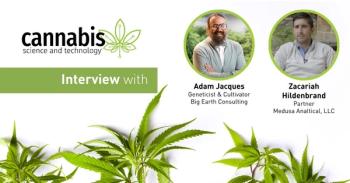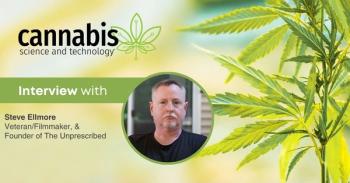
Cannabis Science Conference Spring 2024: Interview with Patrick Bird, Analytical Track
Hear what Patrick Bird says about optimizing method development, good manufacturing practices, and cannabis genomics.
In this interview, Patrick Bird, Senior Manager of Scientific Affairs at bioMérieux, discusses what attendees will learn from his presentation “Innovative Method Development to Meet the Needs for the Cannabis Industry” in the Analytical Track, plus the latest developments in cannabis microbiology.
Bird is also an instructor for the
Check out the video, read the transcript below, and
Read more about the latest in cannabis microbiology:
What will you be covering in your presentation “Innovative Method Development to Meet the Needs for the Cannabis Industry” in the Analytical Track?
Patrick Bird: Over the last couple of years, I've really heard from members of industry that they'll attend conferences and it's a lecture on maybe an education topic, or it's maybe something that is promoting a certain type of technology or organization, and they really wanted to hear a little bit more about what is actually being done from a data-driven standpoint. I hear how this method is great, but what can you actually show me on that? So one of the things that I really wanted to emphasize in my presentation was how an organization such as bioMérieux will develop a method, but we develop that method through a series of tests and how we collect that data, how we analyze it, and how we determine what the best approach is. So in this particular session, we're going to be talking about taking a yeast and mold method that is already certified for use in industry, and how we can optimize that method through some method development to get it to what customers actually need as far as more efficient turnaround time.
We've not done this in the past. So one thing that's very interesting about this is, I know a lot of method developers are hesitant to present raw data into the public atmosphere. And we decided to take that challenge head on. So we're really going to put some data out there and some figures that show why we go in certain directions.
What solutions do you hope to see in cannabis manufacturing and contamination in the near future?
Bird: This is such a great question. And there's two separate pathways I'd like to mention that I'd love to see. And one is slowly gaining traction; we start to hear more and more about good manufacturing practices (GMP), good cultivation practices, and how the industry continues to adopt these principles and modify them to this industry. So a direct adoption from, say, the food or dietary supplement industry probably isn't applicable. There needs to be some changes, because the cultivation practices are different, and how the products are produced, or get to a point where maybe they're extracted and ready to be put into a beverage or food, are different. But they're key, they really are the first fundamental step for consumer safety when we talk about microbial contaminants, but also other contaminants too. The more investment we have in that good manufacturing, good cultivation, I think is really important for the industry.
On a separate note, and this is more on the technology side and we probably are a couple years away from it, but how can advanced molecular techniques—whole genome sequencing (WGS), meta genomics—how can they play a role to really improve both cultivation and in a better understanding of the microbial microflora of cannabis? There has been research done on this where they've done some whole genome sequencing, some meta genomics to understand what organisms may be present on the cannabis plant. So we know that, but understanding it better from a regional to a national respect would be crucial and helping to develop maybe regulations that are more applicable to certain regions based on the organisms that are there, but it would give us a better understanding of, which organisms are present, but are these organisms actually pathogenic to humans? Do they contain any virulence genes, the resistance genes of certain sanitation chemicals or pesticides that can be utilized in this industry? So this is something that the industry, that a lot of microbiologists have come into the food industry, it's slowly being adopted. There's a lot of hesitancy with data—what does it actually mean to you, and understanding and translating the bioinformatics portion of it to actual applicability? We're starting to get there, though. And we're seeing how case studies of understanding what spoilage and pathogen organisms are present and how organizations can better mitigate them and the improvement that they see and say their economic yields, their revenues, and products that have longer shelf lives. So this has really been beneficial to the food industry. As the cannabis industry starts to adopt GMP processes and get better cultivation, they'll be able to monitor when they're outside of their own set specifications. And that's going to lead to this technology immersion with WGS and meta genomics and bioinformatics and a better understanding of what's the causative agent of that and how they can rectify it to really have a higher yield or more productive cycles of growth. So it's coming in this industry. The question is, who will be the early adopters and how soon will they adopt?
Newsletter
Unlock the latest breakthroughs in cannabis science—subscribe now to get expert insights, research, and industry updates delivered to your inbox.



